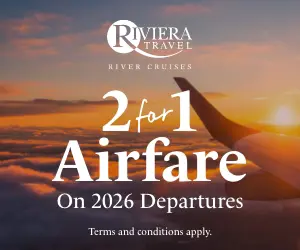Forbes, Washington Post Guide Consumers to Find Smart Travel Advisors
by Jessica Montevago
A new article on Forbes describes why travelers should seek out the expertise and personalized service of a travel advisor. Photo: charnsitr/Shutterstock.com
Forbes contributor Mary Ann Anderson used to own a small travel agency, so she knows a thing or two about what advisors bring to the table.
In her article, “A World of Knowledge: Reasons Why Smart Travelers Need Smart Travel Agents,” Anderson shares why travelers should seek out the expertise and personalized service of a travel advisor.
While some travelers might be lured into using an online booking engine for its convenience, “not a single one can replace your neighborhood travel agent when it comes to friendliness, familiarity and, perhaps the most important of all, the ability to troubleshoot in case issues arise before or during and even sometimes after your trip,” she writes.
Their knowledge eclipses those sites when you factor in the exclusive money-saving deals, great travel tips, and time-saving research they do on the consumers behalf. And that’s not to mention the passion they have for their jobs.
Travel advisors also eliminate the element of surprise. They are aware of how much hidden resort fees cost and which hotels have them. They know which countries require two full blank pages in your passport and which ones require visas.
Their value extends beyond the planning process. “Travel agents are skilled problem-solvers and they know whom to call when hiccups occur,” Anderson writes. Travelers can feel reassured during their trip that, if something does go awry, they can contact a real person (and not an automated phone line) who will listen and act on their behalf.
“The travel industry is ever-growing and ever-changing. You want someone who keeps updated on all of its trends, as well as its travails, and can offer you handcrafted, personalized and professional service all the way from the moment of a trip’s inspiration to the journey’s end,” Anderson writes.
An article in The Washington Post by Christopher Elliot goes one step further, advising consumers how to find a reputable travel agent.
First, says the article, look for certifications and association memberships. The Travel Institute’s Certified Travel Associate (CTA) and Certified Travel Counselor (CTC) designations mean an agent has taken the time to study and understand travel. In 2017, ASTA created a Verified Travel Advisor program, which indicates that an adviser has met “a higher level of verifiable professional knowledge.”
Consumers can also look to agencies affiliated with well-known franchises, such as American Express or Carlson Wagonlit Travel; or with an agency network such as Travel Leaders, Signature, or Virtuoso. “These affiliations offer peace of mind and, sometimes, lower prices,” writes Elliot.
The article also quotes Matthew Upchurch, the CEO of Virtuoso, a network of luxury travel advisers, saying: “Reputation, experience and professionalism certainly come into play. But then you have to count on the X-factor, which really comes down to chemistry.”




















